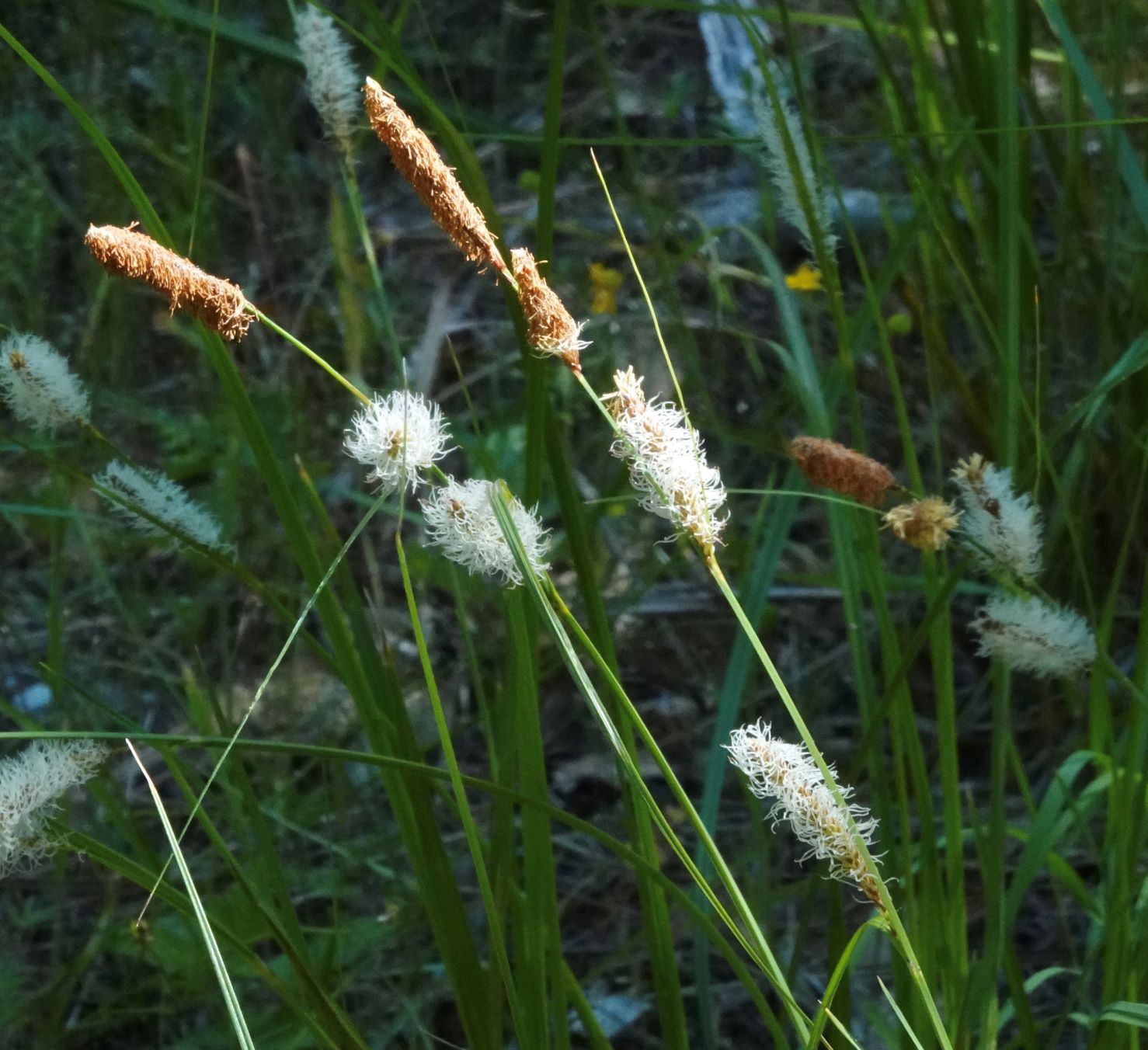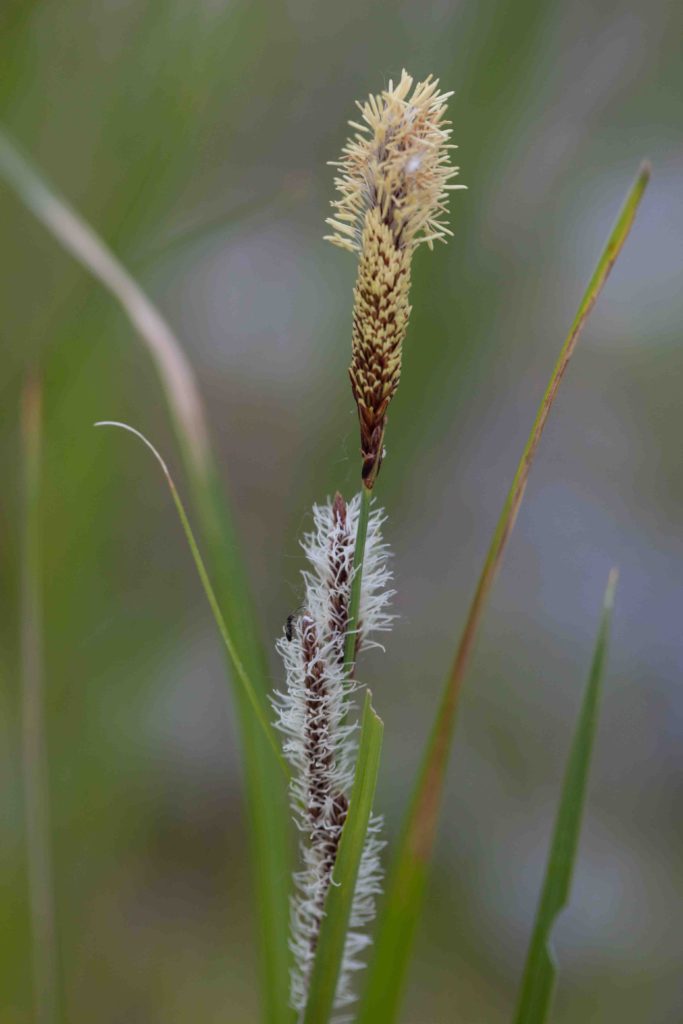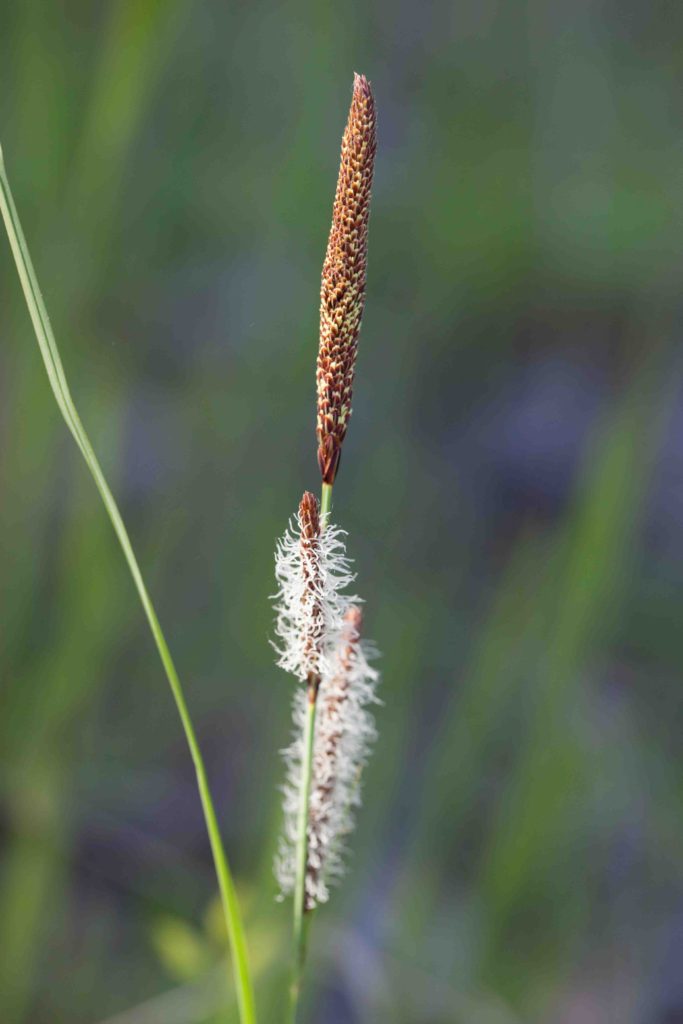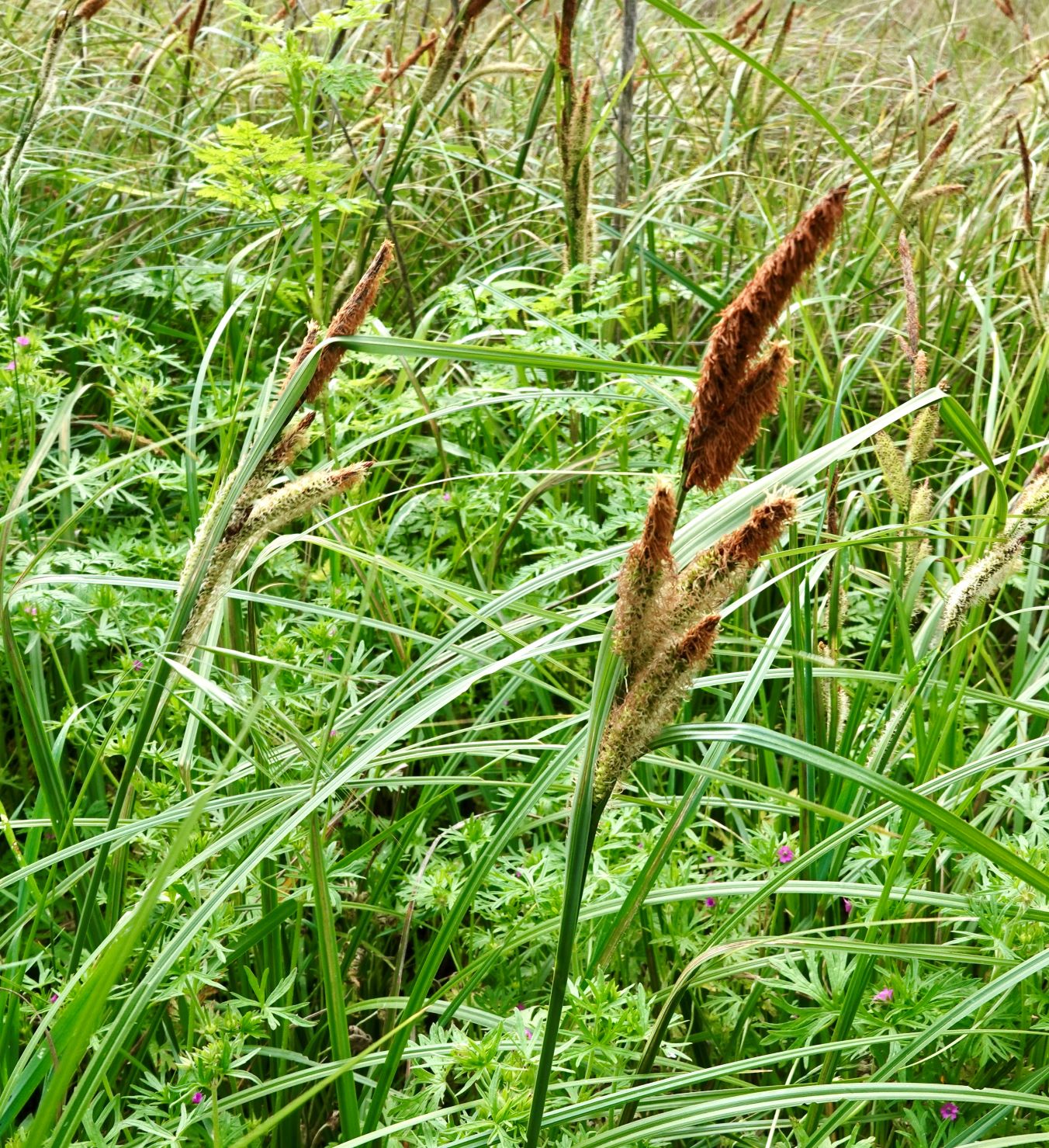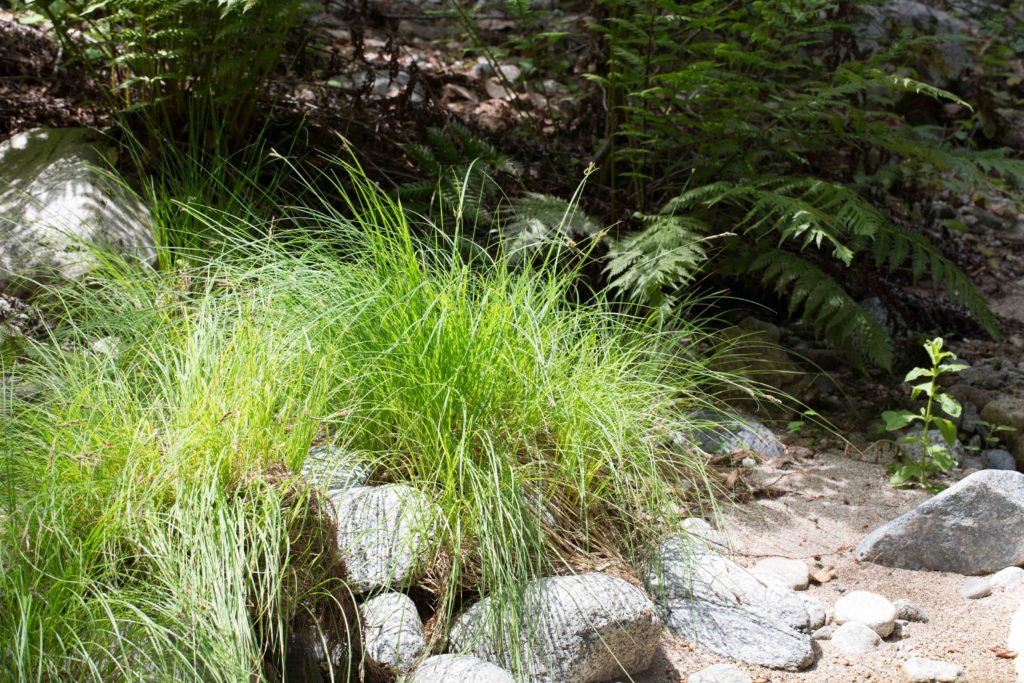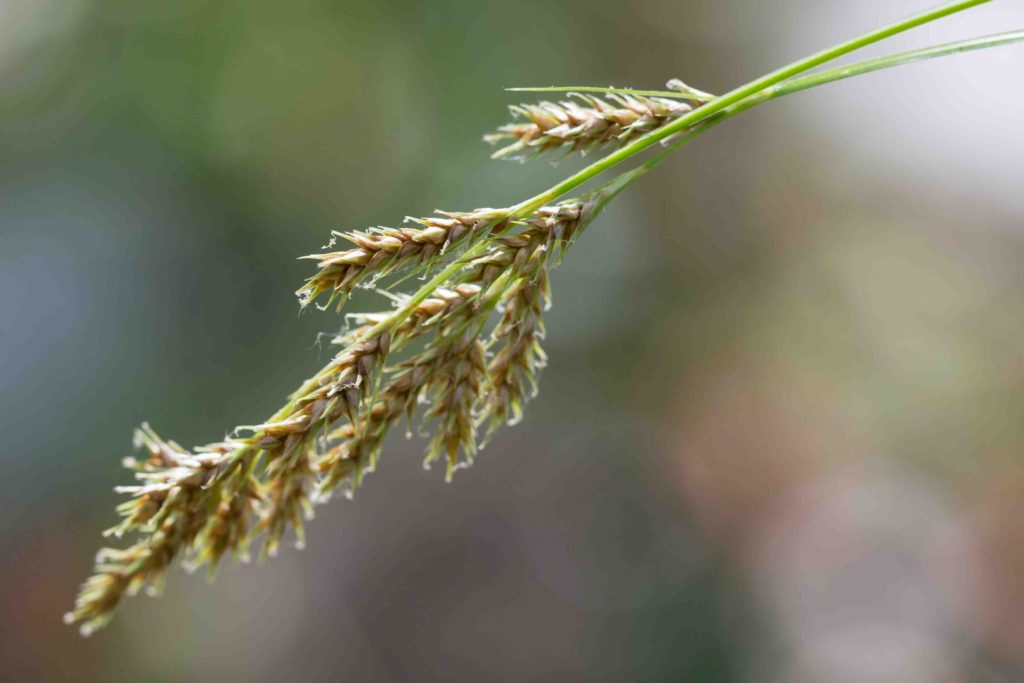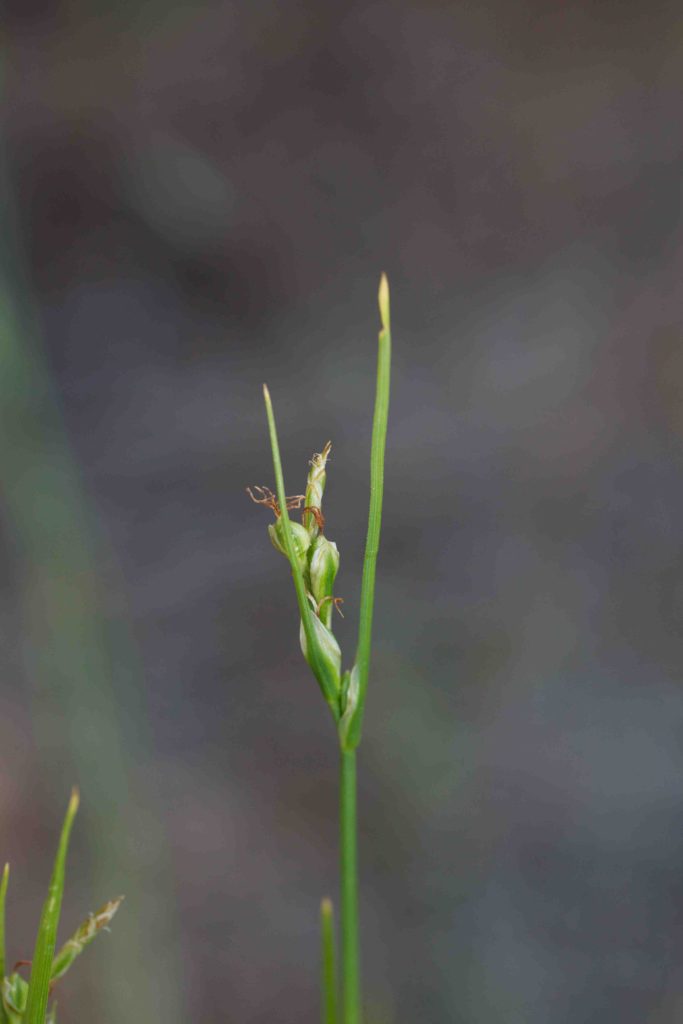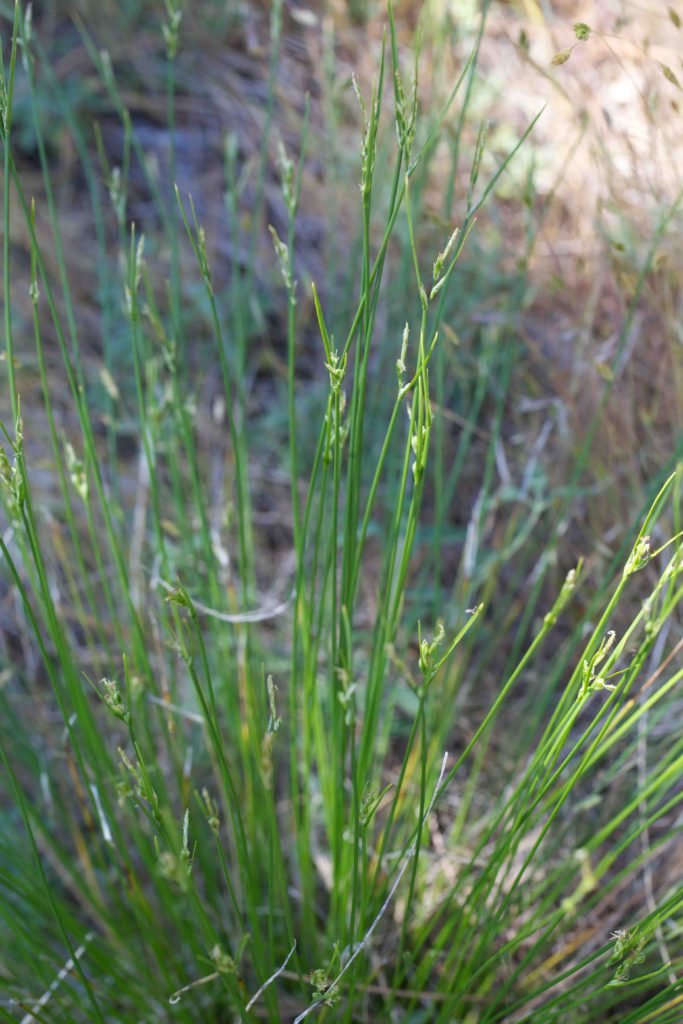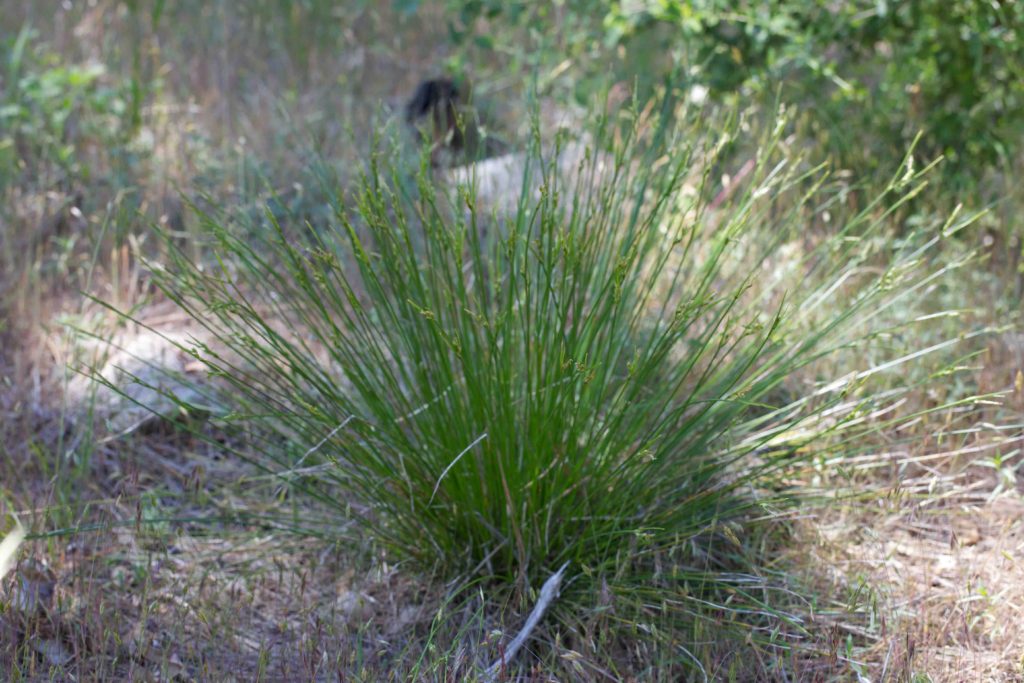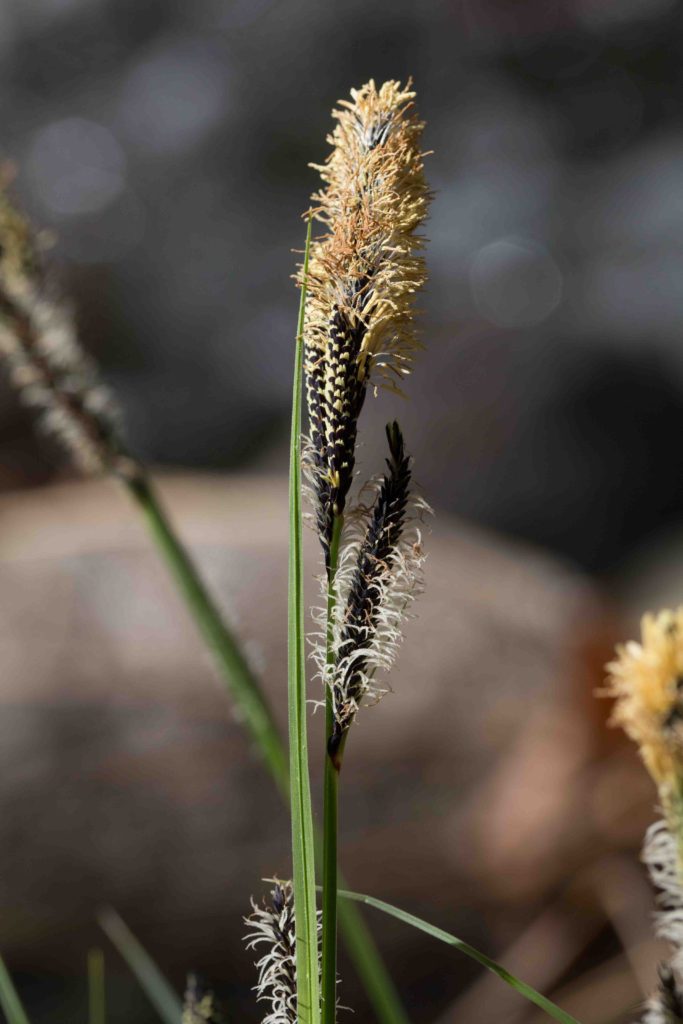Cyperaceae: Sedge Family — Carex (Sedges)
“Reeds and rushes are round but sedges have edges”. There is some truth in this popular saying, but it is not always correct. This page deals with a few members of the Carex genus—sedges as they are commonly understood–which do follow the rule. Sedges are a highly complex group. Their inflorescences combine male and female flowers, sometimes on different heads (spikelets), sometimes one above the other on the same head. A proper botanical key is necessary to identify species with confidence. They are difficult to identify from photographs alone.
Santa Barbara Sedge – Carex barbarae
Blooms:
May–Aug
Plant Height:
30–110 cm
Flower Size:
2–6 cm spikes
Origin:
Native
Habitat:
Moist areas
Notes:
A common sedge, with leaves up to 1 m tall, almost 1 cm wide. The inflorescence is in several many-flowered spikes. The terminal spike is male. The lower, lateral spikes are female, sometimes with male flowers at their tips. Photos #1 and 4 by CJH.
Bolander’s Sedge – Carex bolanderi
Blooms:
May–Aug
Plant Height:
15–90 cm
Flower Size:
Med clusters
Origin:
Native
Habitat:
Moist places
Notes:
A delicate sedge, sometimes erect but often spreading and drooping. The spikelets are loosely grouped, with prominent bracts. Mature fruits are 1.5–1.7 mm long, with a forked “beak” extending from the tip. The beak is 1.5–2.5 mm long. The fruit in the photo is a little smaller than this, but shows the shape and the forked beak.
Many-stemmed Sedge – Carex multicaulis
Blooms:
Apr–July
Plant Height:
2–60 cm
Flower Size:
Small cluster
Origin:
Native
Habitat:
Dry forests above 350 m
Notes:
This is a tufted plant with many stems, which are roundish to somewhat triangular, with a single terminal spikelet. The lowest bract can be leaf-like, with white margins at the clasping base and longer than the spikelet. This plant is included to show that not all sedges are found in wet areas; this favors dry areas at higher elevations.
Torrent Sedge – Carex nudata
Blooms:
Apr–July
Plant Height:
30–70 cm
Flower Size:
Spikelets 2–9 cm
Origin:
Native
Habitat:
Rocky streambeds
Notes:
Unlike the previous sedge, this is found in the middle of or alongside streams. It is densely tufted with conspicuous (for a sedge) inflorescences. The terminal spikelet is male, the lateral spikelets female.
